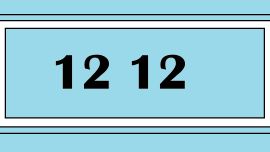An expert panel convened by Argentina's public prosecutor concluded Friday that late Albiceleste legend Diego Maradona had received inadequate medical care in the lead-up to his death on November 25, 2020.
In a 70-page report, the Multidisciplinary Medical Board determined that the medical team responsible for the late footballer’s care – led up by Dr. Leopoldo Luque, Maradona’s neurosurgeon – had “increased the permitted risks” to their patient’s care and that the decision to send him home after undergoing brain surgery for a blood clot had “affected the final outcome.”
Below, some of the main findings from the report issued by the expert team, made up of 20 physicians and experts in toxicology, hepatology, cardiology, nephrology, forensic medicine and psychiatry.
- Although it is counterfactual to affirm that Diego Maradona would not have died had he had hospitalised adequately, taking into account the situation documented in the days prior to his death, we agree that he would have had a better chance of survival at a multipurpose healthcare centre receiving care in accordance with good medical practices.
- The actions of the health team in charge of Diego Maradona was inadequate, deficient and reckless.
- According to good medical practices and once the acute pathology that gave rise to his hospitalisation at the Clínica Olivos (with a subdural haematoma) had been resolved and considering the clinical, clinical-psychiatric condition and the poor general condition, he should have continued his rehabilitation and interdisciplinary treatment at a appropriate institution.
- Diego Maradona, at least since his admission to IPENSA [hospital in La Plata], was not in full use of his mental faculties, nor in a position to make decisions about his health.
- What is stated in the autopsy protocol is ratified, this is reinforced by histopathological results and what was observed in the copies of the medical documentation in the file.
- Maradona began to die at least 12 hours before 12.30pm on 11/25/2020 – that is, he presented unequivocal signs of a period of prolonged agony, so we conclude that the patient was not properly checked from 12.30am on the day 11/25/2020.
- Signs of a risk to his life presented in the patient were ignored. (As evidenced in audio recordings from November 25, November 18 and November 19).
- Nursing care provided during the stay at the house in Tigre, after leaving the Clínica Olivos, was plagued with deficiencies and irregularities, as was widely exposed in the document (absence of checks).
- Maradona was not provided with correct checks and assistance from medical-assistance, nursing and therapeutic companions, neither in terms of time nor in form, as dictated by the regulations of good practices.
- There are no records of psychological care that took place at the home, after leaving the Clínica Olivos, which we consider essential for the proper treatment of the pathology that Maradona presented.
- Despite having had an adequate prescription in doses and posology for his disorder, we cannot rule out that medication influenced the fatal outcome, since cardiological or laboratory (ionogram, liver and kidney function) check-ups were not carried out in the last 14 days prior to death.
- The home hospitalisation after discharge from the Olivos Clinic was not such, since there were no minimum guidelines for such hospitalisation in a patient with complex multiple pathologies.
- It can be inferred from the documents that was analysed by this Interdisciplinary Medical Board that the medical team fully and thoroughly represent the possibility of a fatal outcome with respect to the patient, being absolutely indifferent to that question, not modifying their behaviours and checking medical plan/care, maintaining the aforementioned harmful omissions and leaving the patient's state of health “to fate.”

















Comments